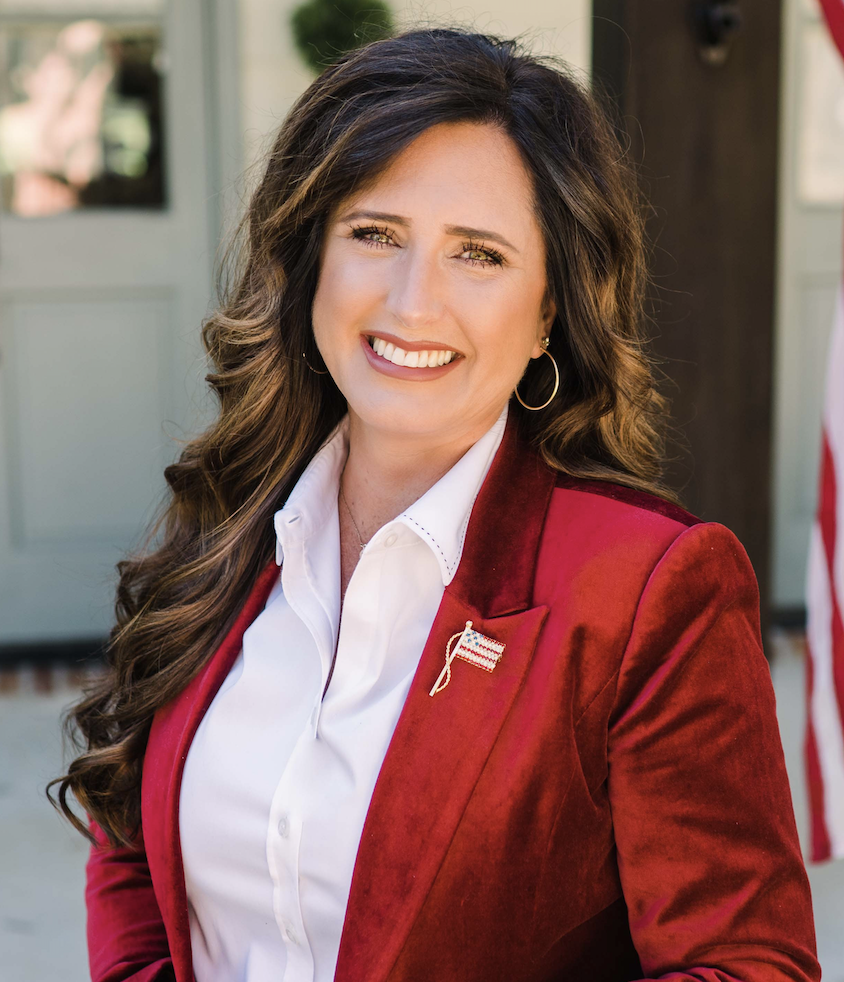"Every job is an important job": Highlights from the 2023 #WPLNSummit “Future of Workforce” Panel
The programming for our 2023 #WPLNSummit was built around the knowledge and skills that any woman on the trail or in office would need.
In addition to our three larger panels, we held two more intimate policy panels, one on the future of workforce and one on secure and sustainable energy solutions.
Our panel on the future of workforce featured the following experts and leaders:
Cheryl Jaeger from Crossroads Strategies (Cheryl’s LinkedIn profile)
Pennsylvania State Representative Kristin Marcell, of HBW Resources (Kristin’s LinkedIn profile)
Rachel Michelin from California Retailers Association (@RachelEMichelin on Twitter)
WPLN Board Member Matt Ralston, from Troutman Pepper Strategies (@MD_Ralston on Twitter)
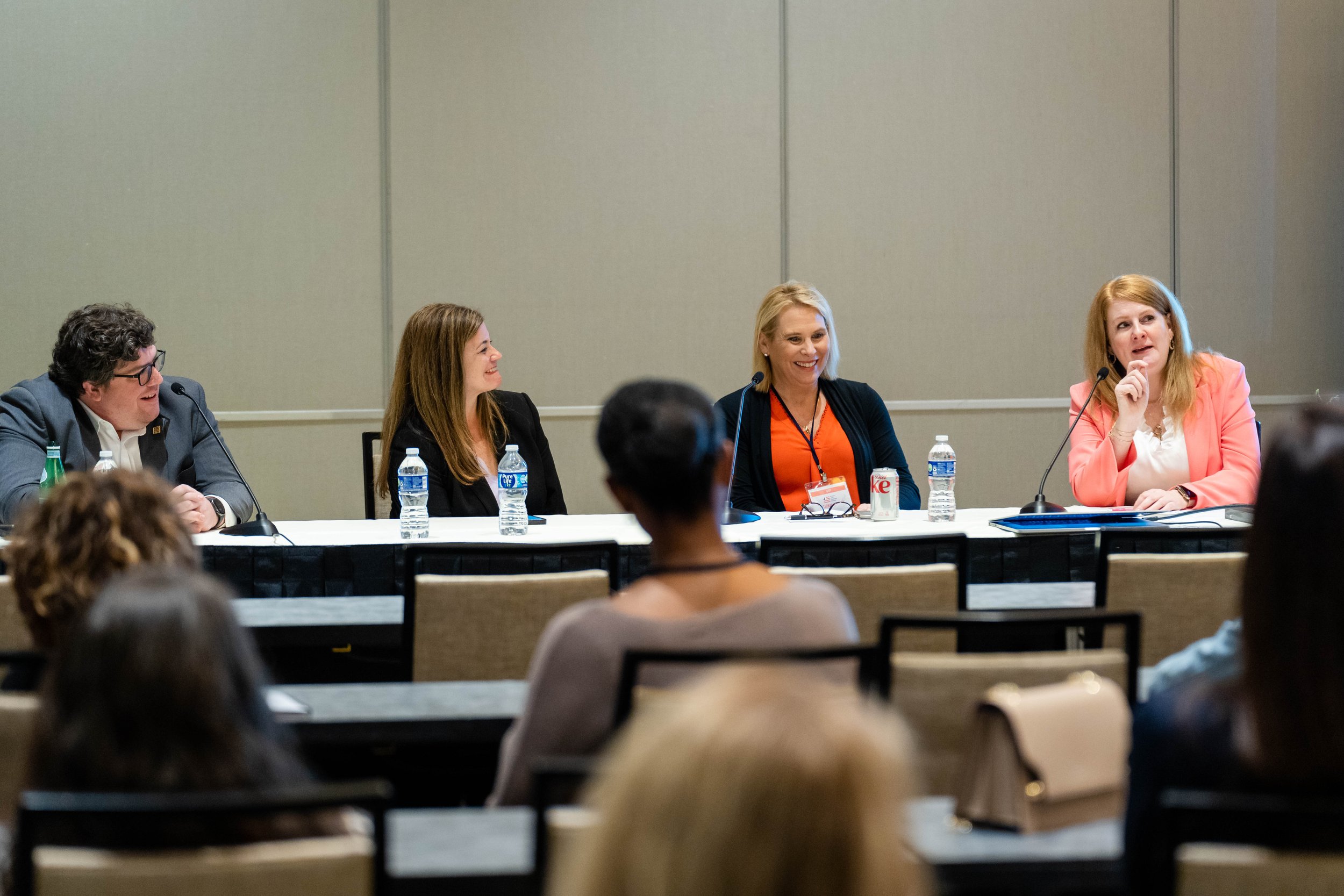.jpg)
Our “Future of Workforce” panelists (from left to right): WPLN Board Member Matt Ralston, from Troutman Pepper Strategies; Pennsylvania State Representative Kristin Marcell, of HBW Resources; California Retailers Association CEO Rachel Michelin; and Cheryl Jaeger from Crossroads Strategies
Whether your career is in the public or private sector, we’re all affected by economic conditions, and industries need to be able to adapt in order to succeed and thrive.
Crossroads Strategies’ Cheryl Jaeger, who also served as the panel’s moderator, opened the discussion by noting that workforce development comes in all shapes and sizes.
“At the national level, there’s a big fight about who’s going to be the Labor Secretary right now, and that’s what’s dominating D.C. political circles – but workforce policy is not just that,” she said. “It’s also kitchen table [issues, like] how do you make ends meet?”
WPLN Board Member Matt Ralston, from Troutman Pepper Strategies, agreed that “workforce development” doesn’t necessarily mean one thing: The term means different things to different people at different ages or in different locations.
For example, in Georgia, he said, “Housing is considered a workforce development issue because rural parts of the state that are dependent on tourism don’t have the ability for the people who work in the community to actually live there – because it’s become such an expensive part to live.”
“If we talk about workforce development, we have to figure out different ways to approach it,” said Rachel Michelin, CEO of the California Retailers Association.
And like the participants on the other panels that day, the “Future of Workforce” panelists emphasized that speaking directly to people is critical.
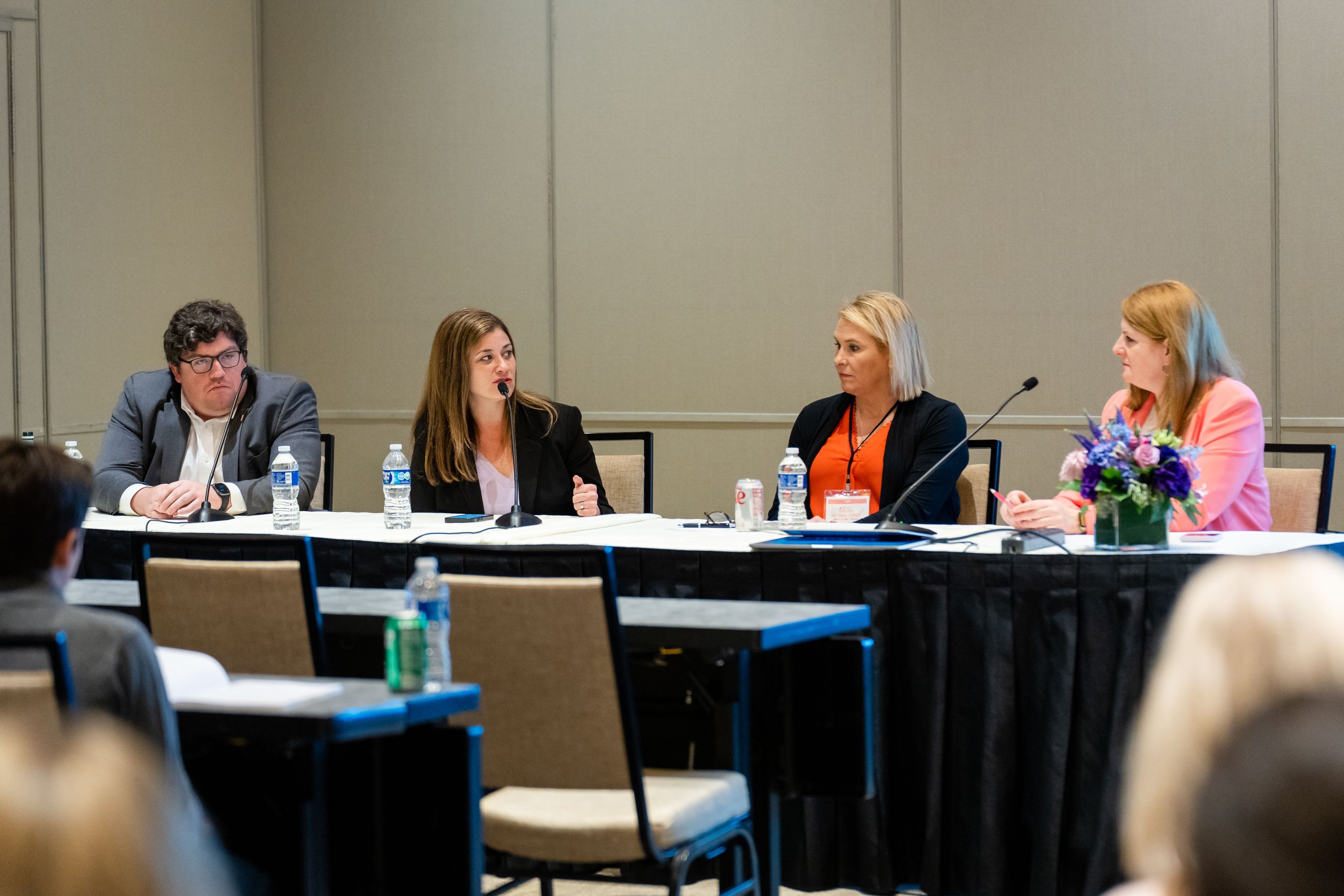.jpg)
“I have learned a tremendous amount from just talking to people in the community,” said Pennsylvania State Representative Kristin Marcell, who also serves as Senior Director at HBW Resources. “Just asking people, ‘what keeps you up at night?’ and then just listening to them and trying to see how policy solutions can be achieved by listening to people.”
“It’s just having a dialogue and having those conversations,” she added.
Matt agreed, saying, “The best way to figure out what the needs are in terms of workforce development is to be out in the community talking to people.”
And Rachel spoke about the way that jobs are critical for communities and for individuals.
“Every job is an important job,” she said. “Every job is important. We employ everyone from our communities.”
In addition to providing people with the ability to earn a living, Rachel noted that the retail industry fills different needs for different people. When she asked the room how many people had worked in retail, nearly every hand went up.
“Almost everyone’s had a job in retail,” she said. “Usually you start off early, that’s your first job.”
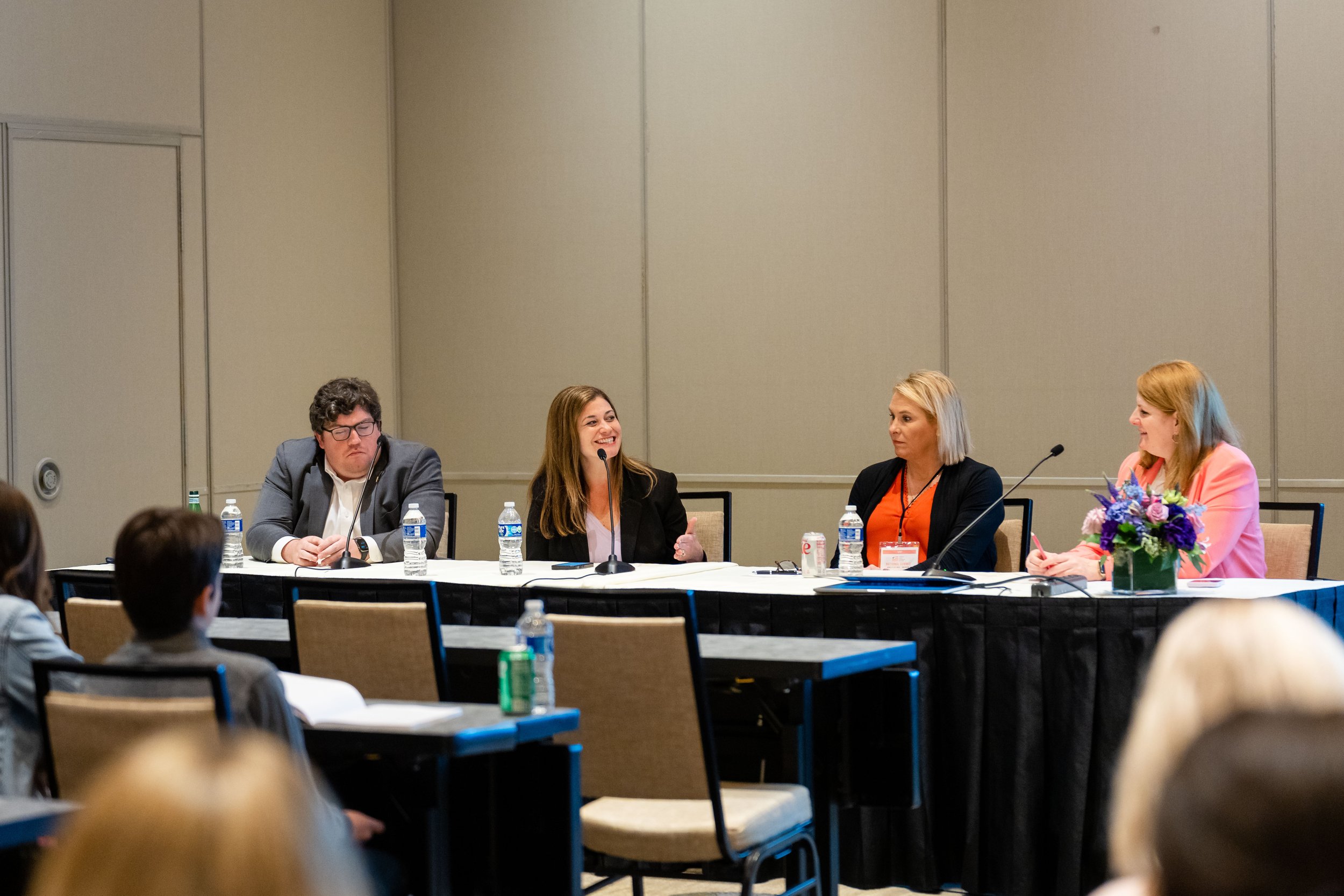.jpg)
Not only is the retail industry among the first places that people learn and develop their work skills, but it is also something that offers people a social connection, particularly older people who may be looking for more social interactions than they would get otherwise.
Panelists also spoke about the challenges facing employers and employees – from smaller companies having to compete against larger companies with more resources, to the impacts of lockdowns on the retail industry, to the pandemic causing women and seniors to leave the workforce unexpectedly.
However, the pandemic also offered some opportunities to reassess how we currently do business and to maintain some of the common sense changes that were implemented, such as allowing flexibility and eliminating degree requirements where possible.
Kristin said she’s hoping a silver lining of the pandemic will be that “maybe we can make it easier” for businesses “so that business is just happening faster, so that we don’t have as much red tape and bureaucracy.”
Matt highlighted that one policy question raised by the pandemic is the issue of connectivity and Internet service – since some people in more rural areas may not have as much access as people in other areas and therefore less ability to work from home.
“You shouldn’t have to do a special deal,” Matt said, in order to have high-speed high-quality internet.
Rachel added that technology could bring significant changes and that the retail industry is constantly thinking about how to adapt.
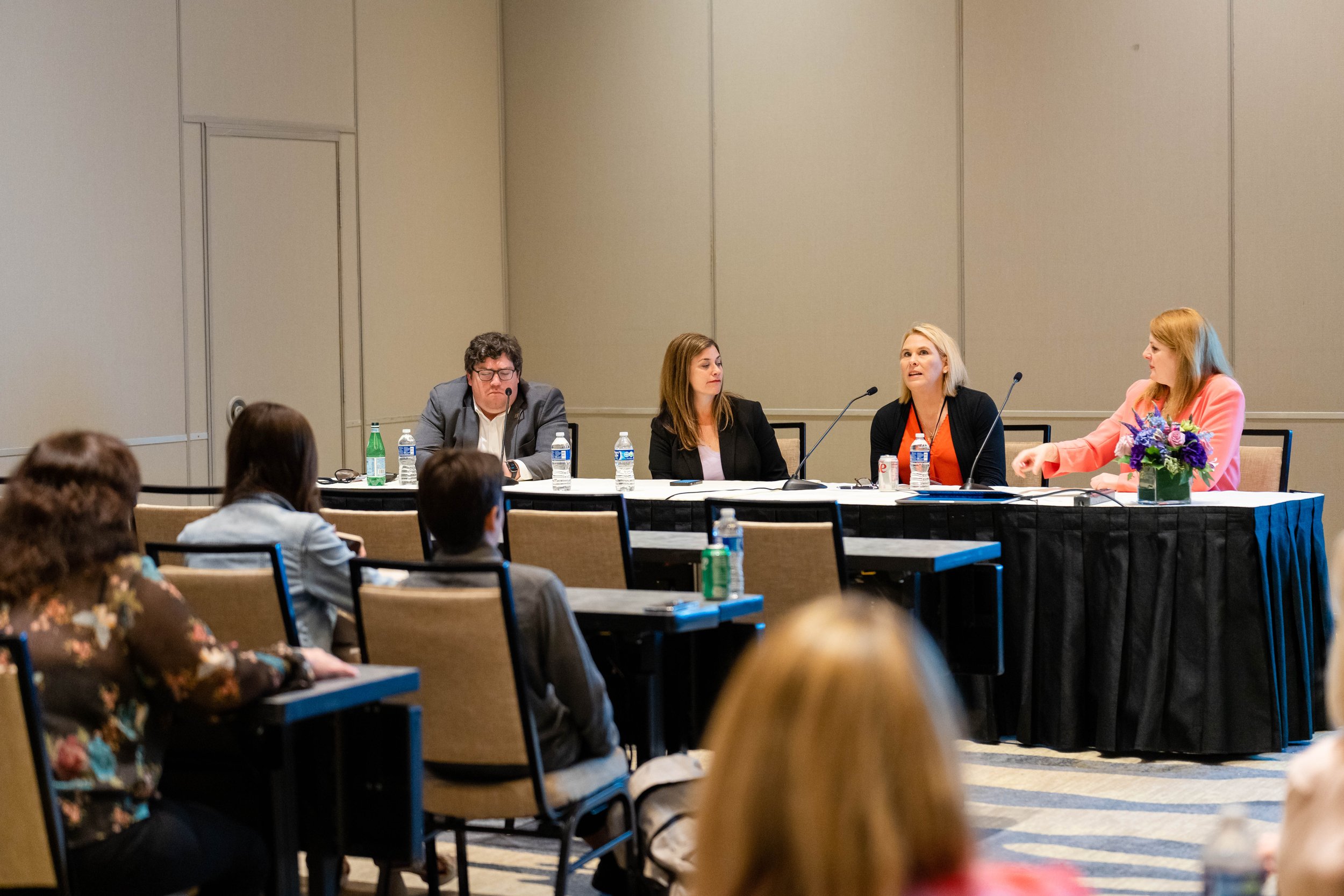.jpg)
“You have to think about, ‘How do we bring technology into this?’” she said.
“There’s so much incredible technology coming that will actually allow more people to be working from home, to allow for more work-life balance,” though she noted that not every job can be done remotely.
Rachel said that thinking outside the box will be critical for elected officials, regulators, and businesses.
When moderator Cheryl asked what the industry could do instead of the government to equip the next generation with the skills they need to succeed in the workplace, Kristin recommended two things:
First, she recommended that industries find a way to reach high school students, so that students can understand that career path from an early age.
Secondly, she highlighted that younger people are really focused on seeing the line between their major and obtaining employment. “Strategic partnerships between industries and community colleges, state universities, wherever you can meet the people who are potentially in the workforce” will help prepare younger people for work, she said.
Matt said that the state of Georgia has been encouraging career academies and having private industries speak with high schools to highlight potential career paths.

Rachel emphasized that it’s important to recognize that everyone’s skills and interests are different, so therefore everyone’s careers look different.
One thing she hates hearing, she said, is the idea that “there’s one path for everyone.”
“Every single path is important because every single individual has their own path,” she added.
And businesses should and do invest in their employees. She shared a story of one employee whose employer paid for her to receive additional education so that she could move up the ladder at work.
Kristin emphasized that women are uniquely equipped to help advance the workforce. “I do think that sometimes women just have a unique perspective,” she said.
“Women are the ones who get things done,” said Rachel. “Women have such power that we don’t realize it.”
She recommended focusing on getting women in key leadership positions beyond just elected or appointed positions.
“You have to change the dynamic,” said Rachel.
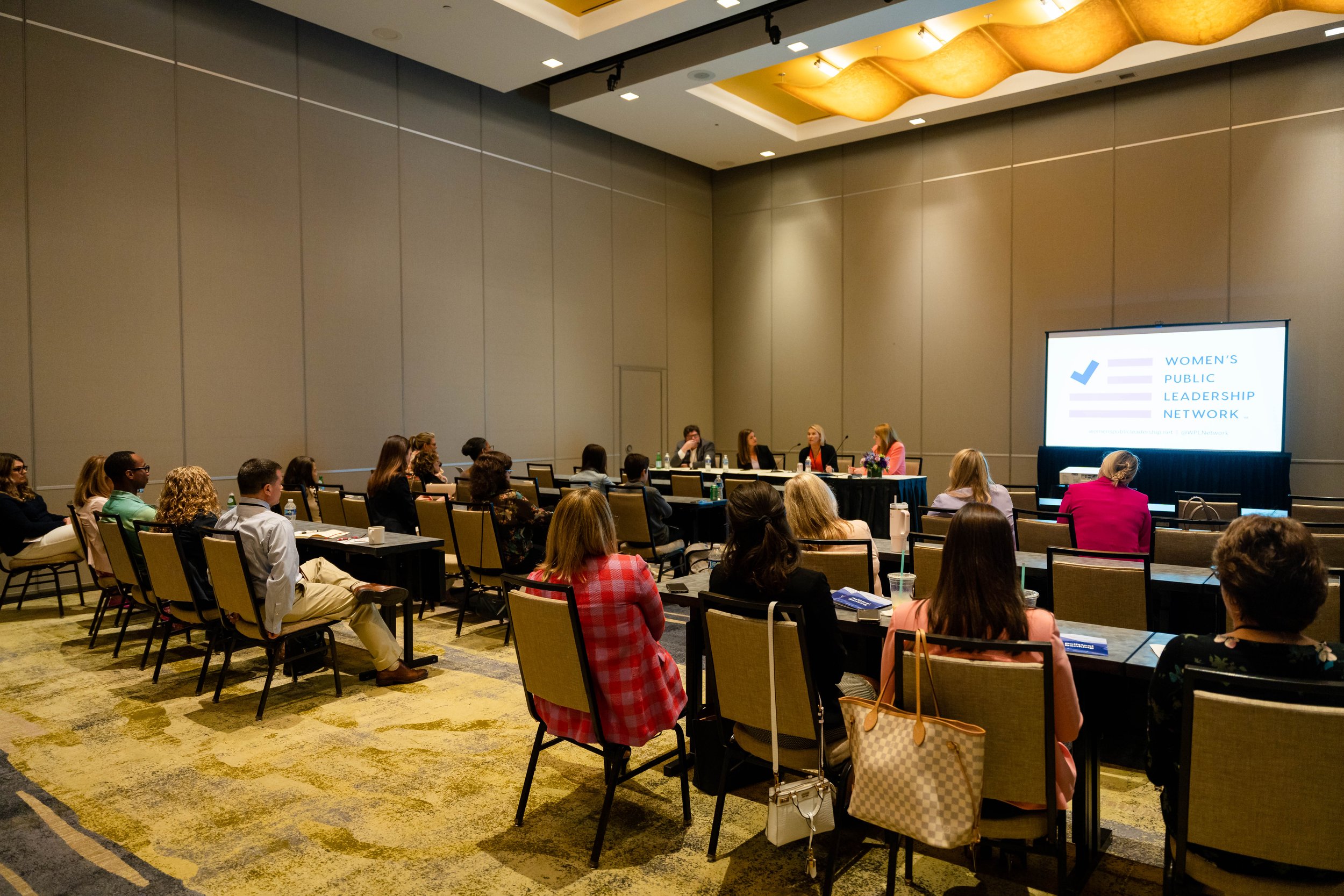
Stay tuned for more details, photos, and posts from our 2023 #WPLNSummit!
To see even more photos from the weekend, click here for our Facebook group. (If you're not a member of our Facebook group, click here to join!)
Want to follow up with our speakers? Here’s a list of our panels, the speakers, and their social media information:
Economic and community development, featuring the following leaders and experts:
Former California Assemblywoman Catharine Baker (@CBakerAD16 on Twitter)
San Marcos Mayor Rebecca Jones (@RebeccaJ516 on Twitter)
Yorba Linda Mayor Pro Tem Tara Campbell (@tarapcampbell on Twitter)
Darian Z. Harris from Advantage Capital (Darian’s LinkedIn profile)
Diversity on the trail, featuring the following leaders and experts:
WPLN President Larissa Martinez (@LMart939 on Twitter)
Monet Bacs from the LIBRE Initiative (@MonetBacs on Twitter)
Nikita Pearson (@MsNikitaPearson on Twitter)
Lorenda Overman from the American Farm Bureau Federation
Angel Fimbres Barcelo from Big Fish Recruiting (@AngelFBarcelo on Twitter)
Voter outreach and community engagement, featuring the following leaders and experts:
Arkansas Republican Party Communications Director Amber Crawford (@AmberRowlett1 on Twitter)
Sara Marie Ridley from Majority Strategies (@SaraMarieK on Twitter)
Former California congressional candidate Tamika Hamilton (@TamikaGHamilton on Twitter)
Chris Lane from Cygnal (@ChrisLaneMA on Twitter)
We also offered more intimate panels on two important issues:
The future of the workforce, featuring
Cheryl Jaeger from Crossroads Strategies (Cheryl’s LinkedIn profile)
Pennsylvania State Representative Kristin Marcell, of HBW Resources (Kristin’s LinkedIn profile)
Rachel Michelin from California Retailers Association (@RachelEMichelin on Twitter)
WPLN Board Member Matt Ralston, from Troutman Pepper Strategies (@MD_Ralston on Twitter)
Secure and sustainable energy solutions, featuring
WPLN Board Chair Joel Noyes, from Hess Corporation (@JPNoyes on Twitter)
Emily Haggstrom from HBW Resources (@emilyhaggstrom on Twitter)
Kristin Westmoreland from American Petroleum Institute (@Kangus10 on Twitter)
Molly Determan from Energy and Technology Workforce (@molly_smart on Twitter)
And our skills building workshops centered around 3 skills critical for any candidate or lawmaker:
Speaking with confidence, led by Jenifer Sarver from Sarver Strategies (@utsarver on Twitter)
Building your brand, led by Madeline Fetterly of Be the Brand (@m_fetterly on Twitter)
Fundraising, led by June Cutter of Highland Illuminate (@junecutter on Twitter)
In addition, Maria Giannopoulos (@greekmaria) and Erica Arbetter (@ThatsErica) from Google gave a presentation on the importance of digital security ("Keeping Yourself Secure with Google”).
Lastly, have questions about our national summit? Learn more here.

-Nov-13-2023-10-00-48-0141-PM.jpg)
-3.png)
